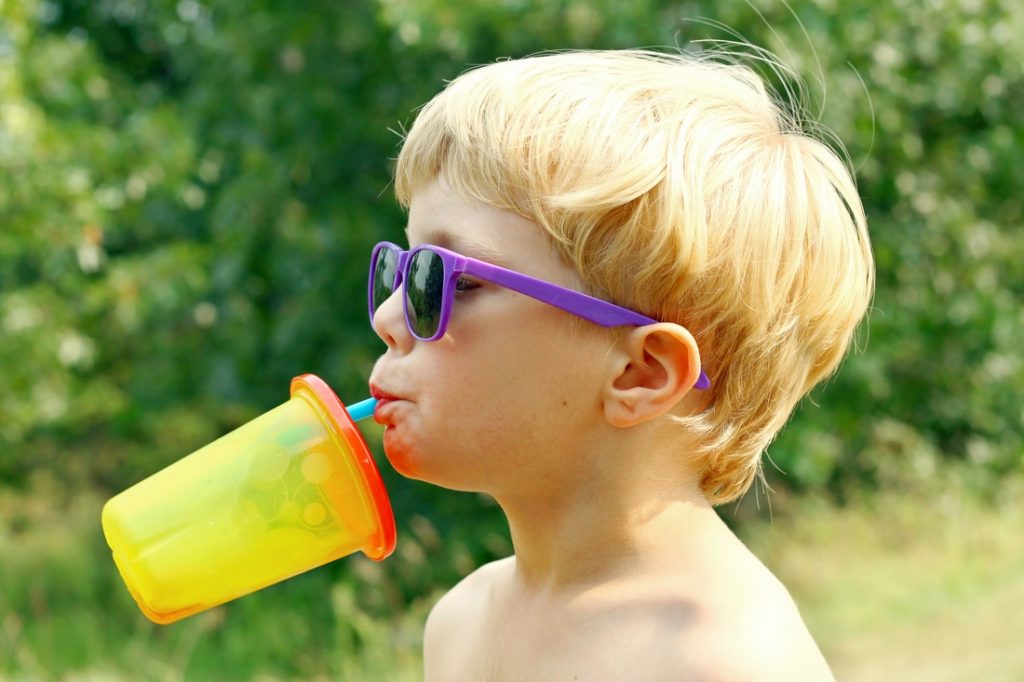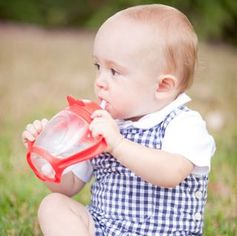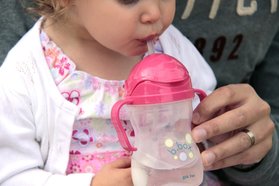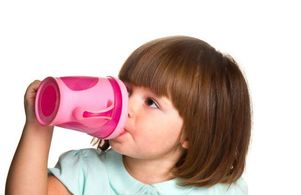Did you know that using sippy cups may hurt your child’s speech development? Over at The Speech Space, we are huge proponents of straw cups, straw drinking and open cups instead of sippy cups for younger children. The type of cup your child regularly uses can impact their speech development! Here are a few reasons why at The Speech Space we like straw cups instead of sippy cups:
1. Oral Musculature (or the muscles your child uses to talk!)
When children have strong oral musculature (i.e., lips, tongue, cheeks, jaw stability), they are more likely able to clearly imitate a variety of movements needed for speech sounds. This is the core for developing clear speech. Children with weak oral motor skills have a higher risk of having a speech impairment. Straw cups and open cups are one way of helping your child develop these critical muscles that they will need to produce sounds. While using a sippy cup does not necessarily mean your child will need speech therapy, it’s best to encourage oral motor development by using straw cups at home.


2. Swallowing
Another area of your child’s development is swallowing, which requires strength from all those oral structures we mentioned earlier! When your child drinks from a bottle or a sippy cup, the spouts prevent your child’s tongue tip from elevating, often requiring them to stick their tongue out in order to drink. Liquid rushes out from sippy cups, so your child doesn’t use their oral structures while drinking. This can contribute to weaknesses in your child’s lips, cheeks and tongue.
By drinking from a straw cup or an open cup your child must use more movement and control from their jaw, tongue, lips, and cheeks. This additional movement (in part to prevent spillage) works on strengthening their oral motor skills and can contribute to their speech development!



3. Dental Concerns
A final concern is liquid pooling around your child’s teeth when using a sippy cup. Sugars from drinks sit on their teeth causing decay (both milk and juices have sugars). Furthermore, if your child pushes their tongue forward to swallow (more likely with sippy cups instead of straw cups), there is a possibility their front teeth will get pushed forward. This might impact future speech development, particularly for certain sounds.
If you’re interested in trying out straw cups with your child, there are some great ones on the market! Some of our favorites are available here and here, but there may be cups you like more. As a parent, we know you are solving for a variety of factors (when traveling, something that doesn’t leak, your child may have a favorite color or character, or a handle so your child can hold the cup by themselves). The most important thing to look for in a straw cup is that the straw is not too soft (so your child cannot bite it too easily–that’s cheating!) and not too thick.
If you have any further questions or concerns feel free to reach out to us at The Speech Space! Until then, bottoms up…or straws up, we should say!
